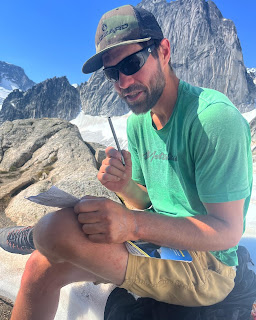Having Major Surgery While on an Anticoagulant
 |
| Getting psyched for knee surgery! |
After it was determined that I would need ACL surgery, and the prospect of a looming 9 month recovery settled in, I started to think of my heart and my anticoagulant dependency. In 2016, I received a mechanical aortic valve and ascending aorta and have since then taken anticoagulants every single day. Through this process, the need to consistently take my medicine was always stressed to me. I was told that Warfarin stays in my system for roughly three days, and in order to keep the correct level, I would need to take my medicine at the same time every day, while eating a consistent diet. This medicine works to make sure that my blood does not clot around my new aortic valve.
The issue with a major surgery while on Warfarin is that, since the medicine is preventing my blood from clotting around my valve, it is also preventing my blood from clotting when I have a major cut. Knee surgery would definitely create major cuts.
Luckily, through my insurance, I have an anticoagulation counselor who called to explain the process. Basically, the advice she gave me was to stop taking my Warfarin 5 days before surgery! Here is the email I received from my anticoagulation counselor:
So, with a surgery date of 7/20/21, I was instructed to take my last dose of Warfarin on 7/15/21. I would then resume my Warfarin after surgery with a higher dose for two days before returning to my normal schedule. My range for INR is 1.5-2.5, just for a reference.When I got this information, especially with the added fact that I would not be taking a "bridge" medication like Lovenox, I was nervous. For the last 5 years, I have taken my medication regiment very seriously. I thought that a missed day would be the end of the world and that I would never be able to miss more than 2 days without very serious repercussions (like a clot).
To verify this information, and discuss my concern, I called the anticoagulation counselor the following day. I told her that I was worried about stopping my medicine for so long, but she reassured me that this was the normal procedure. She said that the risk of a bleed in my case was much higher than the risk of a clot. She told me that the doctors usually did not do surgery if the INR of the patient is above 1.5, so her goal was to get my INR below that point.
 |
| Healing up and back to my usual INR range and diet |
I write this to share my experience, since it is something that I did not know about previously and is something that was scary at first. Through this experience, I was reinforced to always double-check the advice from my medical team (in this case the anticoagulation counselor), tell them about my concerns, and always follow their advice. In the end, knowing that I have enough Warfarin in my system to have a 1.4 INR 5 days after my last dose, and knowing that a major surgery is not a big concern, made me feel a lot better.


Truly a great post. Thanks for such a great information.
ReplyDeleteHeart Valve Testing – AWT, Durability, Hydrodynamic
Heart Valve Startup Incubators
Thank you. Im glad it helped.
ReplyDelete